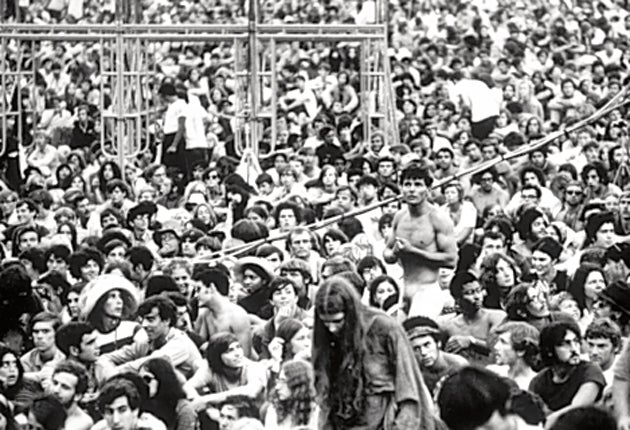The Timeline: Music festivals

Your support helps us to tell the story
From reproductive rights to climate change to Big Tech, The Independent is on the ground when the story is developing. Whether it's investigating the financials of Elon Musk's pro-Trump PAC or producing our latest documentary, 'The A Word', which shines a light on the American women fighting for reproductive rights, we know how important it is to parse out the facts from the messaging.
At such a critical moment in US history, we need reporters on the ground. Your donation allows us to keep sending journalists to speak to both sides of the story.
The Independent is trusted by Americans across the entire political spectrum. And unlike many other quality news outlets, we choose not to lock Americans out of our reporting and analysis with paywalls. We believe quality journalism should be available to everyone, paid for by those who can afford it.
Your support makes all the difference.Greece, 10th century BC
Music festivals were nearly as common in the ancient world as they are in the modern. Though unlike modern festivals, which venerate rock gods, the ancients sought to glorify more ethereal deities. Each spring the Athenians would celebrate the Festival of the Vine Flower, a three day shindig which began with a drinking contest conducted in silence and ended with singing and dancing to "melodies that excite the soul to a mystic frenzy". A description that wouldn't be amiss applied to many a modern festival.
Germany, 1876 – present
Bayreuth is the only music festival which owes its origins to the generosity of a king. Ludwig II of Bavaria agreed to lend the festival's progenitor, Richard Wagner, sufficient funds to stage the showcase of his work and attended its opening in 1876 with both Kaiser Wilhlem I and Dom Pedro III of Brazil. Like all festivals though, its success depended largely on its clientele and in the 1930s there were no kings but an awful lot of Nazis. It was here, a month before hostilities began, that Hitler warned Unity Mitford that war between Germany and Britain was a foregone conclusion.
USA, 1969
Max Yasgur's 600 acre dairy farm in Bethel, New York, was the scene of the most famous music festival of modern times. Woodstock, billed as "three days of love and peace", attracted more than 500,000 people and some of the biggest artists of the day. Despite there being no incidences of violent crime, the stream of long-haired youth that flocked to the small agricultural town proved not to be to everyone's liking. Locals displayed signs with the words "Buy no milk. Stop Max's hippie music festival" and Governor Nelson Rockefeller had to be dissuaded from sending 10,000 state troopers to the area.
Britain, 1970
The first Glastonbury was held the day after Jimi Hendrix died on 19 September 1970 and was attended by 1,500 people. Tickets were priced at the princely sum of £1 each, although the financial blow was softened when Michael Eavis agreed to provide free milk to festival-goers. In 2010, the ticket price was £185 and instead of free milk there was beer at £4 a pint. However, it is still the most popular music festival in the world, attracting some 177,000 people in 2010.
Britain, 2010
In the 1960s and 1970s music festivals were few in number and relatively small in size. However, by the turn of the millennium, you could barely leave your house without stumbling across a field full of revellers. From posh Cornbury festival run by Lord and Lady Rothwick – where former attendees include the current Prime Minister – to the hippie paradise of Womad, there is something for all tastes and most pockets. This weekend it's the Latitude festival, now in its fifth year. The event, which takes place in Henham Park Estate in Suffolk, offers visitors not only music but theatre, comedy, literature, film, fashion and cabaret.
Join our commenting forum
Join thought-provoking conversations, follow other Independent readers and see their replies
Comments